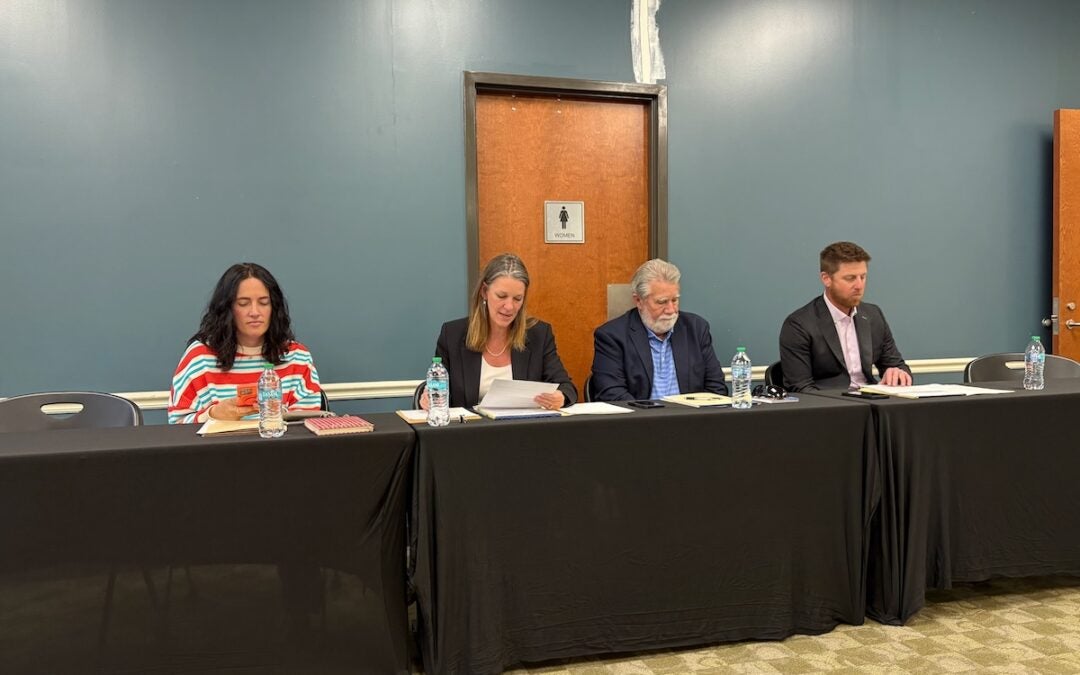On Saturday, May 20, Augusta University will host two community health fairs in partnership with nearby organizations to provide healthcare examinations and tests for locals in need.
From 10 a.m. to noon, AU Health and Asociación Latina de Servicios del CSRA (ALAS) will be partnering to offer Spanish translators and free health services at the AU Family Medicine Clinic – located at 1447 Harper St.
Medical College of Georgia residents and AU Health doctors will be providing: health screenings for adults and kids, school physical screenings, pap smears, HIV testing, vision and dental exams, health talks and various workshops.
According to a press release from AU Health, “this will help provide the necessary basic care for those who may not experience it regularly, or those community members who are uninsured.”
At 11 a.m. to 3 p.m., Augusta University will be collaborating with three local churches to offer the second annual Spring into Health Community Health Fair. These spring fairs are part of the CHEST Foundation’s pilot project for advancing respiratory health equity through community-based efforts for COPD.
“This is a partnership between two AU entities, the Institute of Public and Preventative Health and the Division of Pulmonary Critical Care and Sleep Medicine, and three African American churches – Good Shepherd Baptist Church, Mount Calvary Baptist Church and First Mount Carmel Baptist Church,” said Dr. Lorriane Odhiambo, a co-lead organizer of the Spring into Health Community Health Fair. “We are grateful for the partnership and support that has enhanced the impact of the events.”
Odhiambo said COPD, mainly caused by smoking tobacco, was a prioritized focus for this year’s fair, because of its high rate of poor diagnoses. COPD is a of lung disease compromised of chronic bronchitis and emphysema that blocks airflow, which makes it difficult for individuals to breathe; common symptoms include shortness of breath, wheezing or a chronic cough.
“Millions do not know they have this disease, which delays proper treatment and intervention,” said Odhiambo. “The goal of the project is to raise awareness of COPD in the community, and facilitate early detection of this progressive disease.”
The fair, which will be held at the First Mount Carmel Baptist Church and was also co-organized by Dr. Stephanie Wright from AU’s Clinical Nurse Leader program, will offer attendees free access to health screenings for blood pressure, blood sugar, bone density, height/weight, vision/hearing, Chronic obstructive pulmonary disease (COPD) and more. The First Mount Carmel Baptist Church is located at 6269 Cobbham Rd in Appling, Ga.
Along with door prizes, food and music, the health fair will feature a variety of over 20 vendors and tables of information. Confirmed vendors include: the Shifa Care Clinic, Walton Options for Independent Living, Walgreens Pharmacy, the Senior Citizens Council, the Shepherd Community Blood Center, the Department of Public Health and many other Augusta University entities.
“I think it’s very beneficial because we are going to the community, and sometimes it’s very hard for people to come here to receive different health services … when you think about it, there’s a lot of barriers when it comes to insurance, and sometimes it’s due to a lack of information,” said Odhiambo. “We want to build that relationship, and provide some sort of healthcare service. When people don’t know about a service available to them, they cannot receive it. Many people are unaware of the community programs going on in Augusta.”
In addition to educated volunteers, professionals and multiple organizations, representatives from each church will be present at the fair to add to the friendly atmosphere and welcome attendees.
“It’s somebody that they know and trust, and I think that’s the benefit of partnerships,” said Odhiambo. “We listen to what the pastors say would be best for their congregation and the community; we let them inform our processes, and choose what services would be best.”
Odhiambo also said the event is highly centered around communication, and simply educating participants in order to help them understand options for their health concerns.
“Having information is the first step, because it allows [people] to make a well-informed decision about their health options,” she said. “That way, people can make a better decision on how they want to approach their health situation.”










